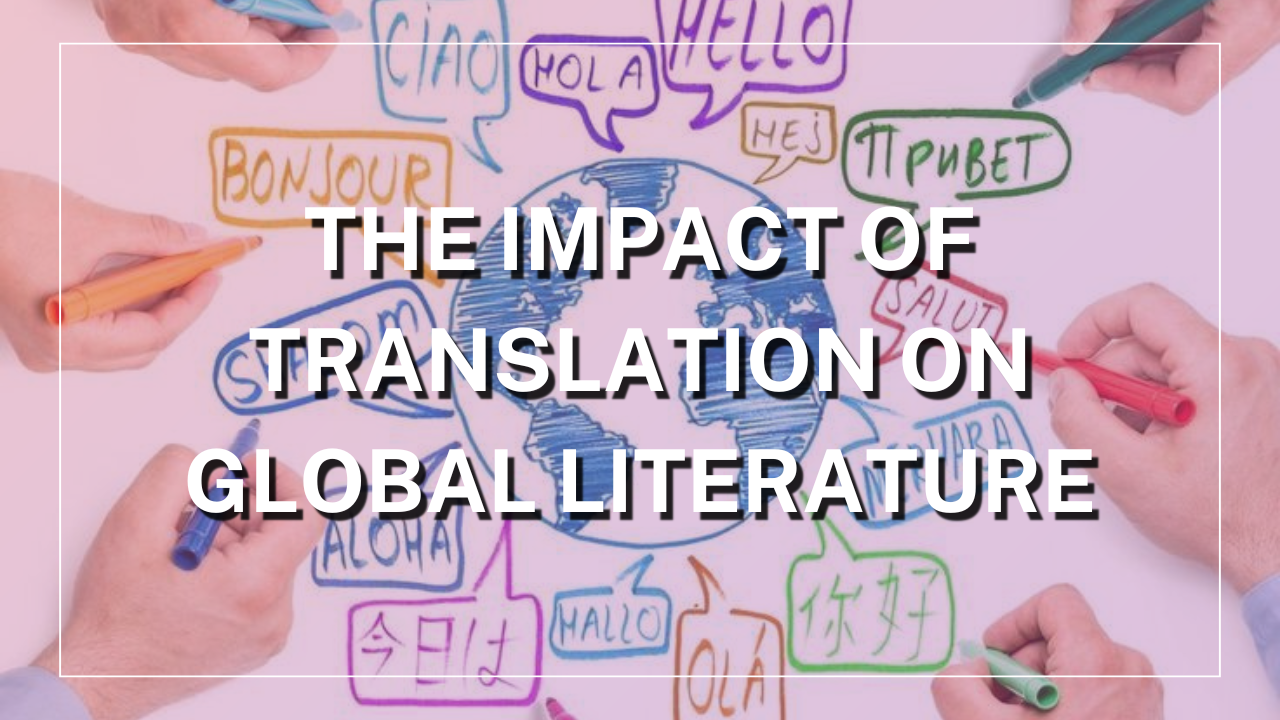For a very long time, translation has served as a link between countries, cultures, ethnic groups and across linguistic barriers. Translation is essential to the field of international literature since it not only allows communication but also influences the very essence of literary expression. It has a significant influence on international literature, affecting everything from the range of literary voices available to readers to the ways in which different cultures view and relate to one another.
1. Expanding Literary Horizons
Translation expands global literature by providing access to works from various cultures, allowing readers to understand people’s lives and emotions. This diversity enriches the global literary canon, ensuring no single language or culture dominates, and enriches the narrative styles, themes, and perspectives of the world.
For example, the translation of Gabriel García Márquez’s “One Hundred Years of Solitude” introduced the world to the realm of Latin American literature, while the English translation of Haruki Murakami’s works has provided insight into contemporary Japanese culture.
2. Cultural Exchange and Understanding
Translation is an act of cultural interaction as well as language practice. Translators act as cultural intermediaries, communicating the readers of one culture to readers of another through translating literary works. By dispelling preconceptions and encouraging empathy, this conversation builds understanding across cultural boundaries.
For example, the multilingual translation of Chinua Achebe’s “Things Fall Apart” has given readers all around the world a better knowledge of colonialism, African history, and the complexity of African societies.
3. Promoting Social Change and Awareness
Literary translation has the power to elevate underrepresented perspectives and draw attention to social issues that might otherwise go unnoticed. Translations can help problems such as social justice, gender equality, and human rights become more widely known and supported. Analogously, the translation of postcolonial literature has brought to light the challenges and experiences of individuals living in formerly colonized areas, so enhancing our comprehension of world history and power structures.
4. Access to Resonating Voices
Translation enhances world literature by incorporating diverse voices and viewpoints, allowing readers to explore ideas from diverse cultural backgrounds. It highlights universal themes like love, loss, identity, and justice, fostering communication beyond linguistic and cultural barriers, thereby enhancing the literary experience. Literature translation fosters intellectual exchange across many societies and cultures. It enables the transnational exchange of philosophical notions, scientific theories, and literary inventions.
5. Artistic Influence
Artistic expression is greatly impacted by translation, which inspires and influences writers around the globe. Translations frequently serve as inspiration for new creative works, reinterpretations, and adaptations when they are incorporated into a different culture. It creates a global community of readers and writers, allowing them access to a diverse world of literature. Translation not only connects readers and writers but also communities and cultures. It is a gateway to spreading influential works of literature throughout the globe.
Translation is a crucial tool in international literature, promoting cultural exchange and influencing literary expression. It provides access to works from diverse cultures, enriching the global literary canon and ensuring no single language dominates. Translators act as cultural intermediaries, promoting social change, incorporating diverse voices, and inspiring writers worldwide.

